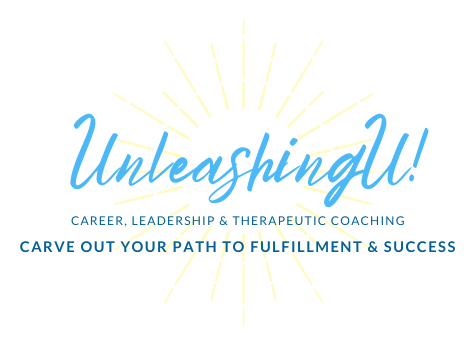This summer, I read one of the best novels I have read in a long time: “The Help” by Kathryn Stockett. The novel, a fiction based on truth, is a story about a woman wanting to write about the personal experiences of black maids who worked for white families in Jackson Mississippi in the 1960s. I was personally inspired by this novel in many ways, and there is one piece in the novel that particularly spoke to me as it relates to helping another to feel good about who they really are.
In the scene, a maid named Aibileen is responsible for also watching a two-year old little girl named Mae Mobley. This little girl’s mother often openly criticizes her two year-old daughter for not doing the right thing (i.e. what her mother wants her to do.) When Mae Mobley does not want to sit in her high chair, for example, her mother gets frustrated and says straight out to her young child: “How I ended up with you when all my friends have angels I just do not know…” And it is clear that this little girl internalizes this message and others messages like this, at even the youngest age, when she later states to her maid/caretaker/good friend Aibileen that “Mae Mo bad.”
Hearing Mae Mobley speak this way hurts Aibileen so much. Here is how Aibileen puts it:
“The way she say it, like it’s fact, make my insides hurt.”
Over the years, I have counseled and coached many young adults who have low self- confidence and little, if any, belief in themselves. Hearing them state during our initial sessions together that they do not feel worthy and do not love themselves, like it’s fact, always makes my insides hurt too. I often wonder when they began to internalize these messages and what experiences or messages they received in their lives that made them believe that they are not good enough, lovable, or capable. The answers they have given me include:
- ‘My parents only approved of me when I did what they wanted me to do and often told me so straight out.’
- ‘I could tell by the look on my parents face when I brought home the bad grade that even though they told me it was okay, they were not really happy with me.’
- ‘My teachers never accepted me for who I was. I wasn’t like everyone else. I didn’t fit the mold. I felt different, not accepted, not worthy.’
Whether these messages are given overtly with words or covertly with our body language, children, and especially teenagers, can easily pick up on whether or not we really love them for who they are, or only love, accept, or approve of them conditionally – when they do things or act in a way that we approve of.
It is from this place that I begin to teach my young adult clients how to re-parent themselves, so to speak, and learn how to love themselves and accept who they truly are. Learning to love oneself when those messages were not given to us at a young age is hard work, but it is doable with commitment and a lot of support.
But what can we do, as parents, educators, or mentors to show that we really do love and admire our younger and older children for who they are so that they can internalize the message that they are lovable, capable, and worthy human beings?
Here is what Aibileen did with Moe Mabley:
“Mae Mobley,” I say cause I got the notion to try something. “You a smart girl?”
She just look at me, like she don’t know. “ You a smart girl,” I say again. She say, “May Moe smart.”
I say, “You a kind little girl?”
She just look at me. She two years old. She don’t know what she is yet. I say, “You a kind girl.”
What Aibileen does here is focus on Mae Mobley’s qualities – the things that make her who she is. Sure Mae Mobley does not always do what she is told, and sure she acts mischievous at times. She’s two! But don’t we all make mistakes, rebel, act a little crazy sometimes, not feel in the mood to behave or be like everyone else?
More often we tend to focus on and point out to someone, especially our children and loved ones, what is ‘wrong’ with them or what it is we do not like about what they are doing. Criticism often comes easier than holding our tongue and instead saying something kind, loving, and encouraging.
My mother always told me growing up: “If you don’t have something nice to say, don’t say anything at all.” In other words, if you have the urge to criticize, keep your mouth shut.
But I would like to suggest that we go much further and deeper than that. I suggest that we commit to proactively taking the time every single day, even multiple times each day, to go out of our way and point out the qualities that we love and respect in our children, younger and older, and our loved ones.
More often, as a society, we praise accomplishments – what we do. But the truth is, accomplishments change, and when our self-esteem and belief in ourselves relies on what we do, we can never feel truly good about ourselves. Because what does it mean when we do not bring home the best grade, or we did not win the race that time? Are we still ‘good?’ Are we still loved?
Instead, in order to really build healthy self-esteem and confidence in our children and loved ones, it is much more effective to point out their qualities, the things that make up who they are: kind, caring, loving, hard-working, committed, determined, courageous, ambitious…individuals.
Qualities do not change. The stuff that makes up who we are is always in us, and are a part of us. A kind word spoken from a place of respect for who the person is will have a much longer lasting effect on a person because it will touch their inner soul and help them to build a solid foundation of knowing and respecting who they truly are.
Sometimes, when we are really frustrated with someone, it is hard to find something nice to say or point out. In those times, I challenge you to sit down and make a list of the qualities that you do see. I promise they are there. (And if you have trouble finding them, I can help you find them!)
This new year, let us all commit to speaking kindly and taking the time every single day to point out to our children, with sincere love and admiration, the qualities that make them who they are. When we do this, I guarantee our children, young and older, will walk taller with love and belief in their heart and confidence in their step.







We Won't Ever Get Anywhere if We Don't Start Somewhere | Build Better Relationships
[…] and feeling inspired by the clients I have the honor to help re-tap into their own unique voice, qualities, gifts, and strengths. I was thinking about how awesome it would be to create a space (on Facebook for now and in real […]
Get What You Deserve in Your Relationships | Jenny Sassoon, LMSW, CFC | Confidence & Direction Mentor and Coach
[…] […]